The modern work environment has increasingly recognised the need for predictable work patterns, especially for parents and families. This guide explores the current landscape of predictable work and how potential legislative changes could impact workers across the UK. We will include highlights from our data report "The fight for predictable work: How new laws would affect parents and workers".
Predictable work legislation
The 2023 Workers (Predictable Terms and Conditions) Act was initially set to come into force in September 2024, but Labour has replaced it with gradual updates introduced through the new Employment Rights Bill:
April 2024: Protections for Parents Facing Redundancy
- New protections for parents facing redundancy were introduced, extending priority for suitable alternative employment for 18 months after childbirth or adoption. This protected those on pregnancy, adoption, and shared parental leave.
July 2024: Proposals in the King’s Speech
- Labour outlined their plan to ban exploitative zero-hours contracts, expand flexible working, and protect parents and carers. This set the stage for broader reforms.
October 10, 2024: Employment Rights Bill Introduction
- Day-one unfair dismissal rights: Protection against unfair dismissal from the first day of employment.
- Predictability for zero-hours contracts: Employers must offer guaranteed hours for regular work patterns.
- Flexible working: Default right to request flexible working from day one.
- Ban on fire and rehire: Limits on firing employees to rehire them under worse conditions.
- Fair work agency: A new enforcement body to regulate employment right.
October 21, 2024: Major Updates
- Minimum wage and living standards: Adjustments to the minimum wage will now account for inflation and the cost of living, aiming to raise living standards and address wage disparities.
- Predictability for Zero-Hours Contracts: Further steps towards improving predictable work schedules, including compensation for short-notice shift cancellations.
- Right to switch off: Proposals for workers to have the right not to be contacted outside of work hours, except in emergencies.
- Ethnicity and disability pay gap reporting: Large employers will be required to publish data on ethnicity and disability pay gaps, expanding the scope of the existing gender pay gap reporting.
- Strengthened trade union rights: The bill enhances union recognition and access to workplaces, while lowering thresholds for union ballots.
Key features of the act
Predictable work refers to a work arrangement where the hours, days, and schedule of an employee are consistent. It contrasts with unpredictable / ‘one-sided’ flexibility often found in zero-hours or short-term contracts, where workers have little control over when or how much they will work.
Who does this affect?
Predictable working patterns disproportionately affect working parents – especially mothers. Unpredictable work leaves parents struggling to find emergency childcare, and subsequently having to take more absences. With predictable work, parents can plan ahead, ensuring better work-life balance.
Salaries and predictable work
When asked how important predictable work is to oneself, the overwhelming response was that it was ‘very’ or ‘extremely’ important, with 77% of participants selecting one of these options.
Notably, nobody stated that predictable work was ‘not at all’ important to them.
The importance of predictable work was further highlighted through the figures in our report, demonstrating what monetary sacrifices participants would agree to in order to ensure they had a predictable working pattern.
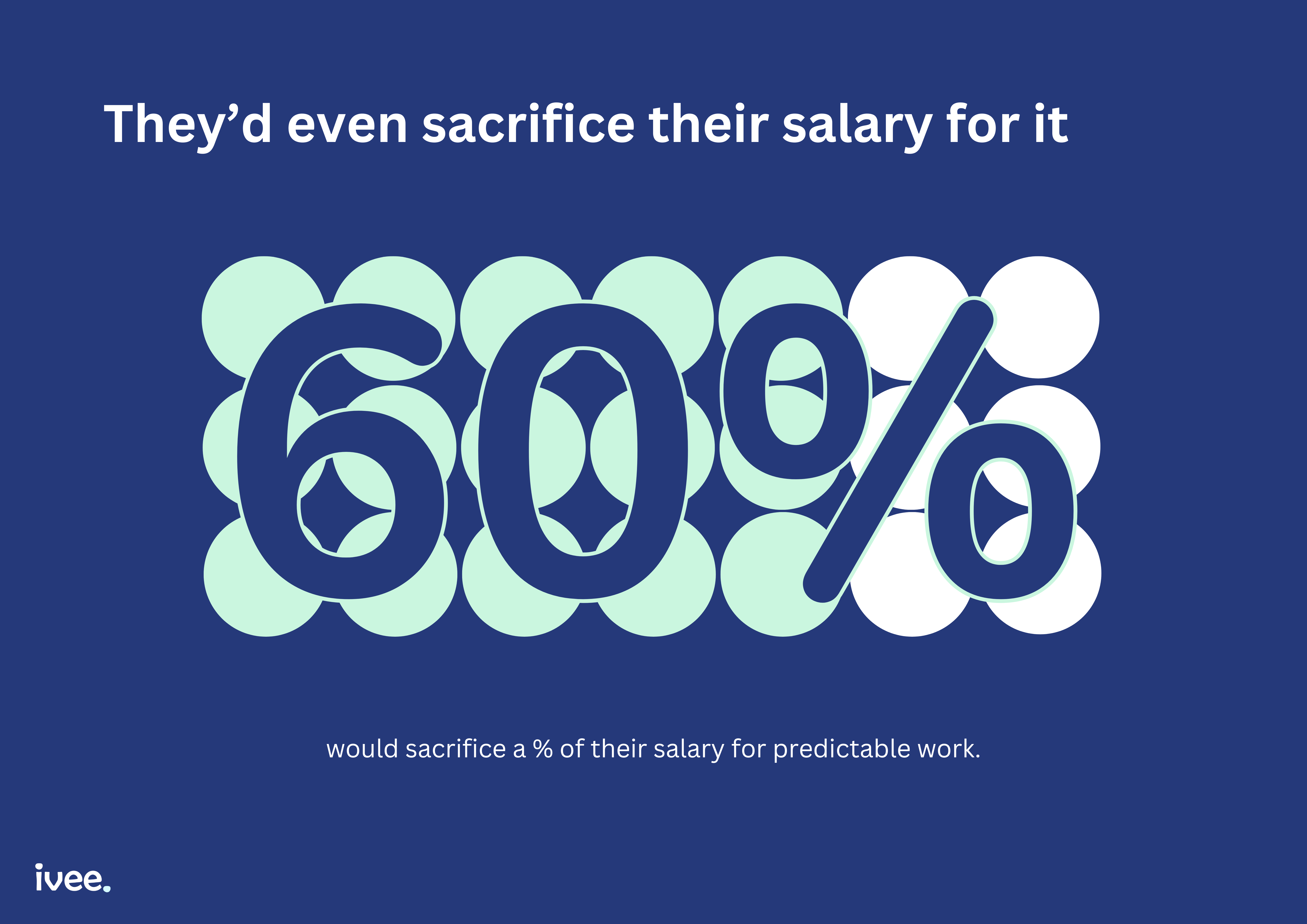
Parents are more willing to take a paycut
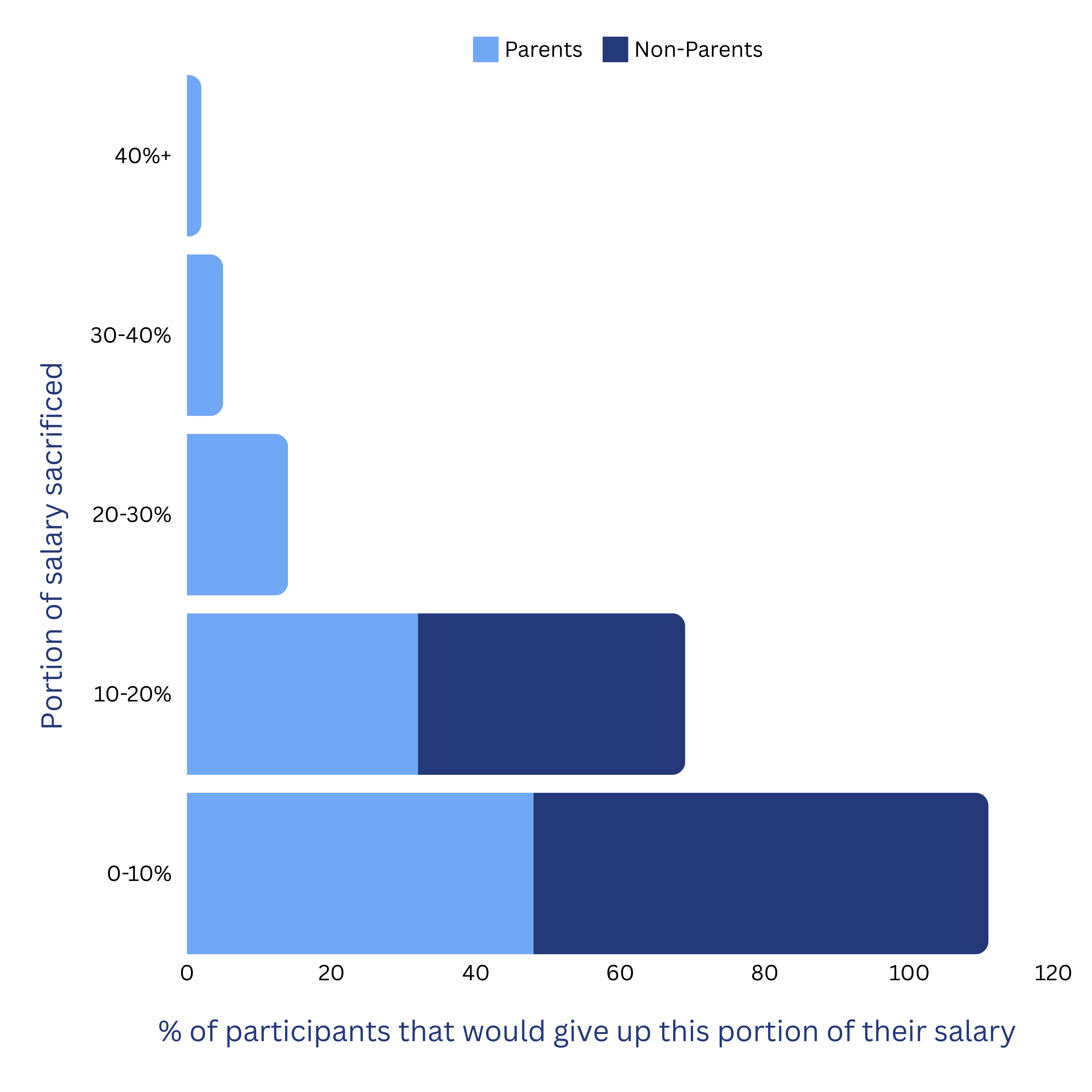
All workers would stay longer in predictable work
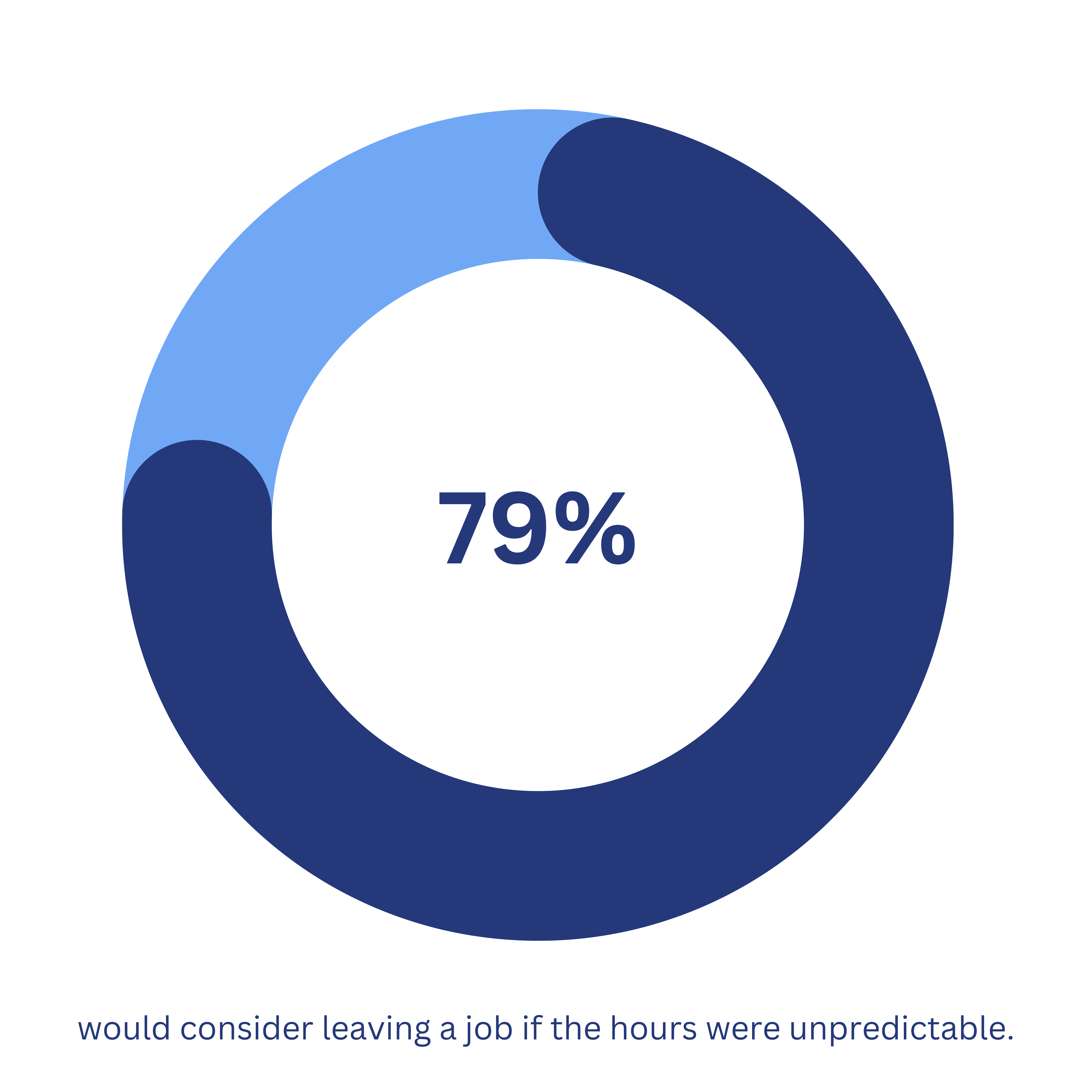
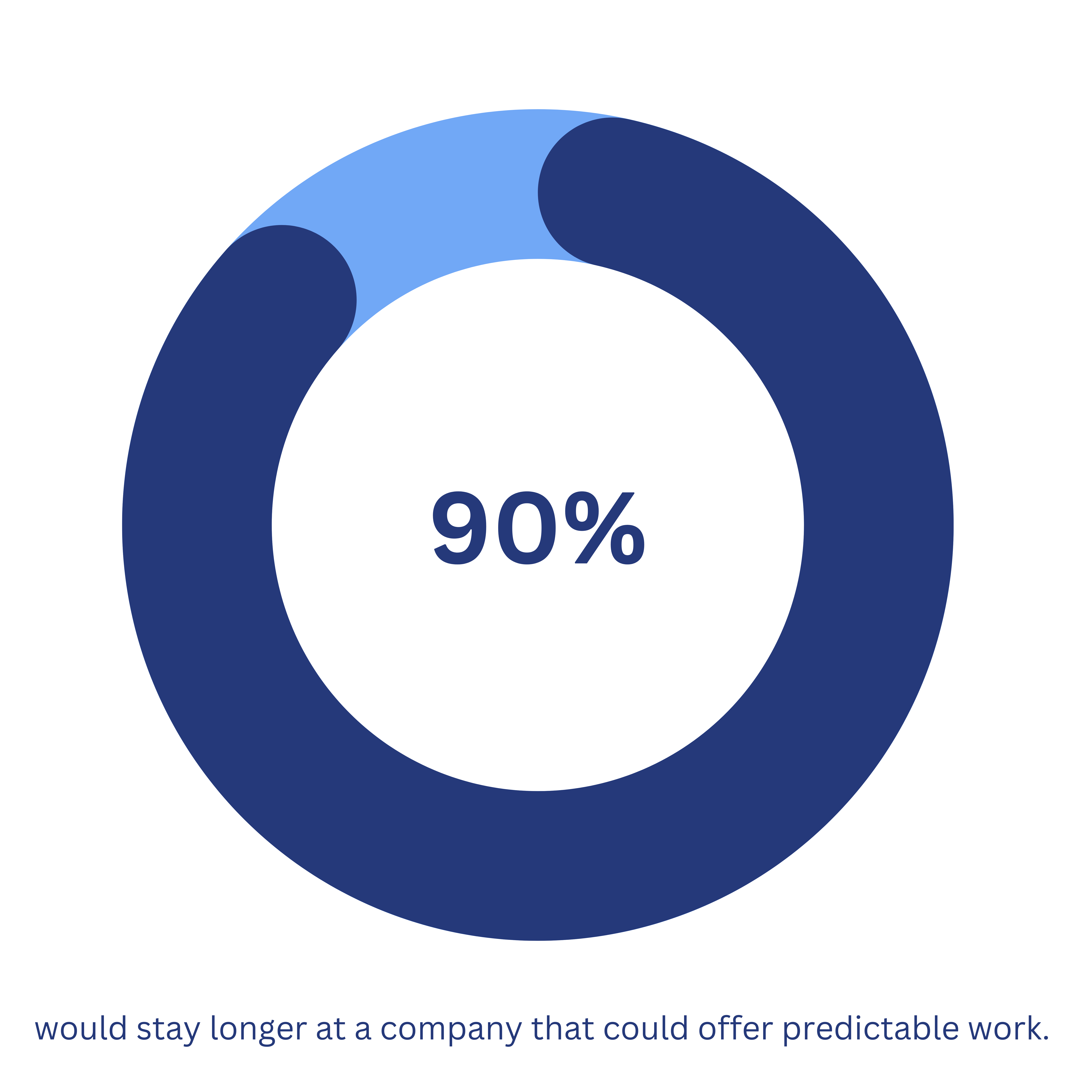
Unpredictable work has a negative impact on employee mental health
66%
of participants in unpredictable work reported that their job caused them stress.
59%
in unpredictable work have experienced burnout due to their job.
80%
say unpredictable work would negatively impact their mental health.
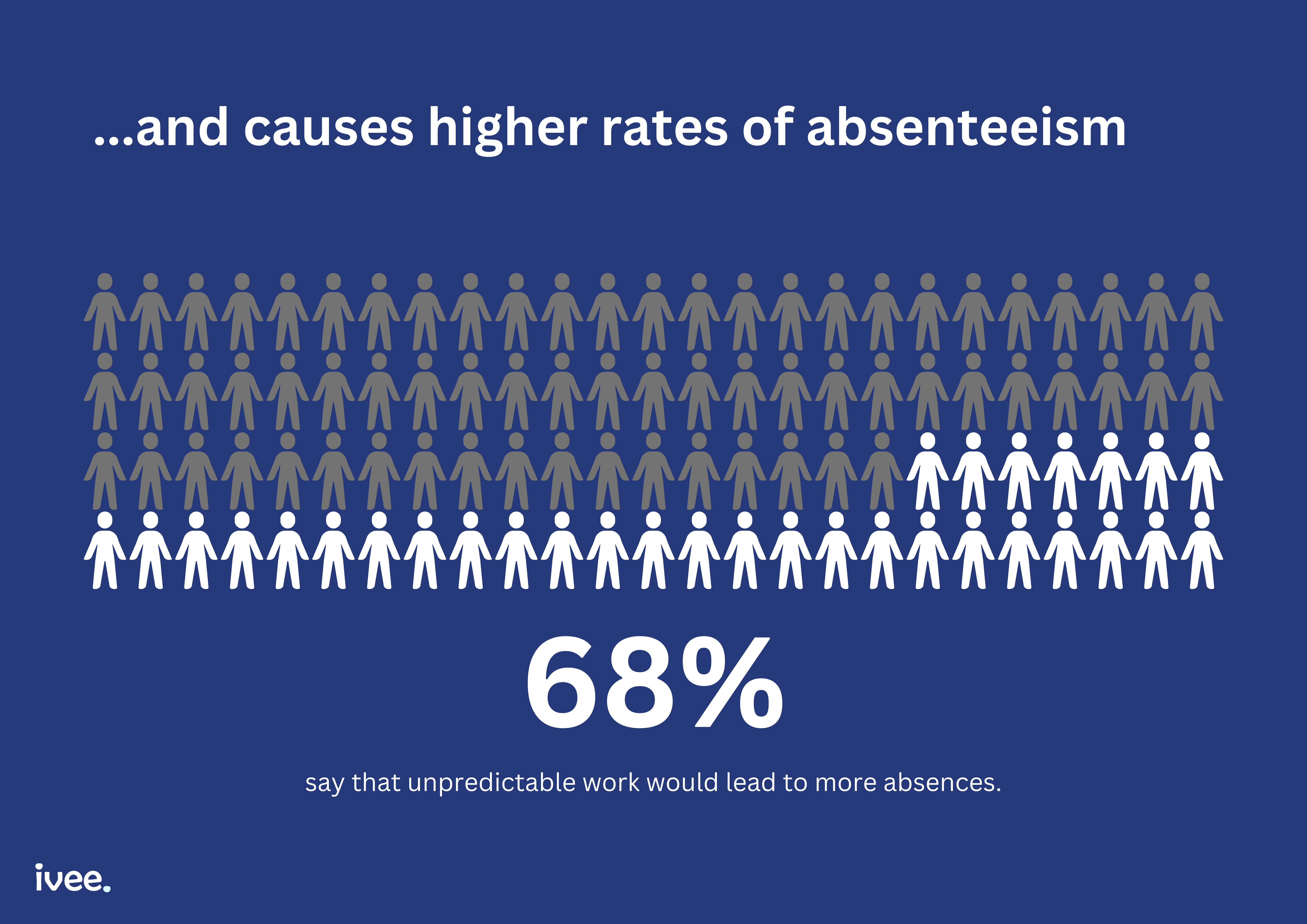
Childcare is the overwhelming reason for absenteeism
Predictable work and the disproportionate impact on women
We uncovered significant gender differences in the perceived negative impact of unpredictable work on family life. Female respondents show greater concern, with 71% indicating it would affect their family life “a lot” or “quite a lot”.
51% of men voted that unpredictable work would negatively impact their family life only “somewhat”, “a little”, or “not at all” versus only 29% of women.
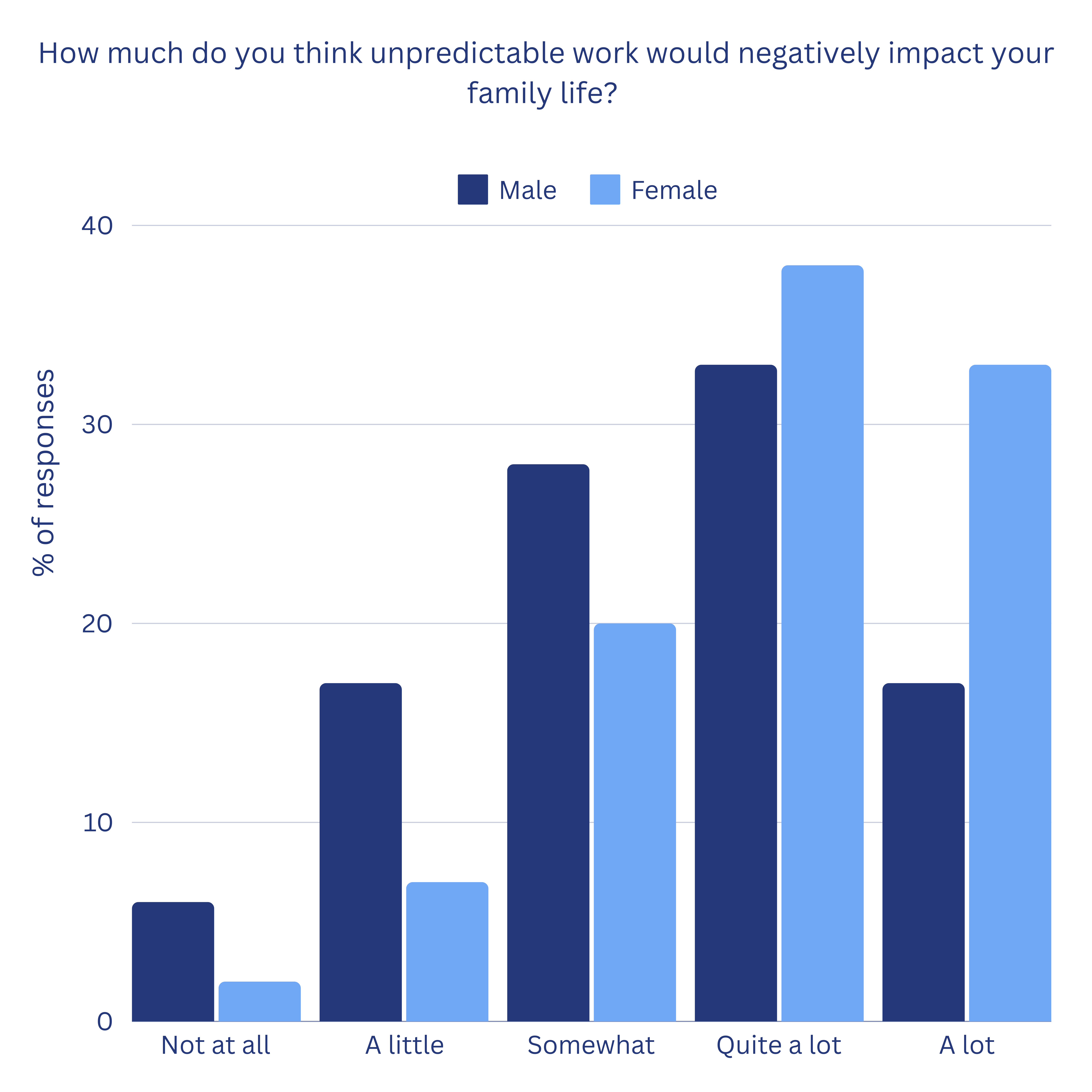
”For so many, especially parents, the burden of unpredictable work— the constant scramble for last-minute childcare and the relentless stress of erratic hours—completely overshadows any benefit of higher pay. Our data makes it clear: workers are demanding work-life balance and mental well-being over salary.
If employers truly want to attract and retain top talent, they need to step up and offer reliable, consistent scheduling. This is no longer a nice-to-have—it’s essential.
Amelia Miller, ivee Co-Founder
Conclusion

Our report highlights the critical importance workers, especially parents, place on predictable work schedules, with many willing to make significant financial sacrifices to secure them. According to our survey, 60% of respondents would voluntarily accept a reduction in their salary for the assurance of consistent hours, with some parents willing to take cuts as large as 30-40%.
As recent legislative efforts under Labour continue to focus on promoting more predictable work arrangements, it’s clear that all workers stand to benefit from more stable schedules. Predictable work not only improves mental health and reduces absenteeism but also has a profound impact on employee retention, with 90% of respondents indicating they would remain longer at companies offering such conditions.
Given these findings and Labour’s evolving policies on employment, it is evident that fostering predictable work is essential for creating a more inclusive, supportive, and productive workforce. As we anticipate further changes in 2025, it’s crucial for employers and policymakers to prioritise predictable work arrangements to better meet the needs of workers and their families.
Want to learn more?
Click below to download the full report or email us at hello@ivee.jobs if you're interested in writing about the report.
Download "The fight for predictable work"Featured Blog Posts







